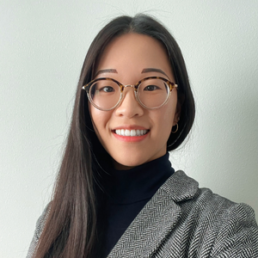Lindy Zhang, MD
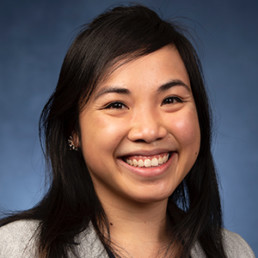
admin
Dr. Lindy Zhang is currently a clinical and research fellow in the Johns Hopkins/NIH Pediatric Hematology/Oncology program. She completed her bachelor’s of science in biochemistry at the University of Michigan and her medical degree at the Albert Einstein College of Medicine. She is a child of immigrants and the first in her family to pursue a post-bachelor’s degree. She is passionate about diversity and inclusion, having done research and published on Asian American representation in academic medicine. She was a former conference co-chair for the 2013 APAMSA National Conference, a regional director, and a chapter president in APAMSA. Beyond her professional aspirations, Lindy has an insatiable appetite for brunch which is supported by her love to do pilates and yoga and loves reading coming-of-age novels in quiet cafes.
Stephen Chao, MD
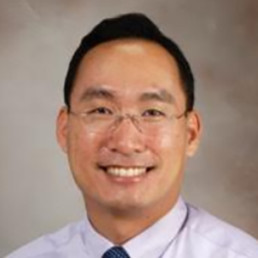
admin
Stephen Chao, MD is a family physician at Legacy Community Health Services, a federally qualified health center in Houston, Texas. He is currently also a clinical assistant professor of family medicine at the University of Texas Health Science Center at Houston, and was previously on the faculty at Baylor College of Medicine as well. Born and raised in Houston, Texas, he attended Rice University, graduating with degrees in Biochemistry and Health Policy. He received his medical degree from the University of Texas Health Science Center at San Antonio, is a past president of the Chinese American Doctors Association of Houston, is the current vice-president of Health Care For All Texas, and also presently serves on the board of Physicians for a National Health Program.
Dr. Chao completed his family medicine residency training at UT Health San Antonio and is committed to caring for the underserved residents of Houston and Harris County. His interests include care for immigrant and refugee populations, community health, and public policy. He believes in providing health care for all.
He also serves or has served on the boards of Refugee Services of Texas-Houston, OCAGreater Houston, Light and Salt Association, Eastside Promotoras de la Buena Salud, and the San Antonio Healthcare-NOW Coalition.
Sean Wu, MD, PhD

admin
Dr. Wu completed his undergraduate degrees in mechanical engineering and biology at Stanford University and his MD and PhD degrees in the MSTP program at Duke University School of Medicine. After internal medicine residency at the Duke Hospital, he completed his training in general cardiology at Massachusetts General Hospital/Harvard Medical School and a research fellowship at Boston Children’s Hospital prior to becoming an Assistant Professor of Medicine at Harvard Medical School. He move to Stanford University School of Medicine in 2012 where he is now the Endowed Faculty Scholar of the Lucile Packard Foundation for Children, an Associate Professor of Medicine and, by courtesy, Pediatrics, and the Associate Director at the Stanford Cardiovascular Institute. He was previous the National President of APAMSA in 1995-1996.
Ruey Hu, MD, MPH

admin
Ruey Hu, MD, MPH, who hails from Toronto, Canada, served as national president of APAMSA from 2016 to 2018. Ruey studied molecular biology at Princeton with certificates in computer science, neuroscience, and Chinese language and culture. He completed an MPH in epidemiology and biostatistics at the Johns Hopkins School of Public Health. He graduated from Vanderbilt University School of Medicine and completed residency in internal medicine at Vanderbilt University Medical Center. He is currently a cardiology fellow at Yale. He is very passionate about clinical research and is a member of the Delta Omega Public Health Honor Society. Ruey finds joy in motivating others to do what they are passionate about. While on national board, Ruey’s favorite part of the job was getting to meet the spirited and hardworking members of APAMSA across our chapters. He enjoys continuing to advise medical students today.
Nolan Kagetsu, MD
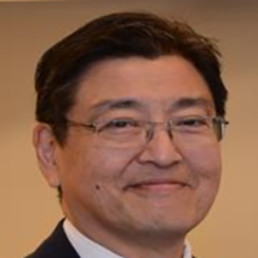
admin
Nolan Kagetsu is faculty co-adviser for the APAMSA chapter at the Icahn School of Medicine at Mount Sinai. Nolan studied chemical engineering at the Massachusetts Institute of Technology. After graduating from Albany Medical College, he completed a residency in diagnostic radiology at Mount Sinai West and a fellowship in Diagnostic and Interventional Neuroradiology at NYU. He currently is a diagnostic neuroradiologist for the Mount Sinai West Department of Radiology. He lives in Manhattan with his partner.
He serves on the American College of Radiology Committee for Diversity and Inclusion and has written about unconscious bias, microaggression, and being an upstander. He is an Associate Clinical Professor in the Department of Diagnostic, Molecular and Interventional Radiology at the Icahn School of Medicine at Mount Sinai. He was a diagnostic program director for 15 years and has spoken about interview preparation at the National APAMSA meeting.
While Nolan was born in Canada, he self identifies as sansei, since his grandparents immigrated from Japan to Canada.
You can follow him on Twitter @nkagetsu and Instagram @NYCneurorad
Jhemon Lee, MD

admin
Dr. Lee is a private practice radiologist in Los Alamitos, CA. He has been Chair of the Advisory Board for APAMSA for years, and was one of the original student organizers that helped lead to the formation of APAMSA in 1995. He is a board member of the National Council of Asian Pacific Islander Physicians (NCAPIP). He has been involved with the National Association of Asian American Professionals (NAAAP) since 1994, serving in many roles including National President, President of its Chicago chapter, and co-chair of the 2008 National Convention. He is also a past president of the Orange County chapter of OCA – Asian Pacific American Advocates, and is the Medical Advisor for the Diagnostic Medical Sonography programs at Platt College.
Dr. Lee received his bachelor’s degree in Engineering Sciences at Harvard University and obtained his medical degree from the University of Maryland. He completed his residency in diagnostic radiology at the University of Chicago, where he was chief resident, and a fellowship in abdominal imaging at Brigham and Women’s Hospital/Harvard Medical School in Boston.
On the side, he and his wife, Misa have been doing improv comedy for years with group such as Cold Tofu, Los Angeles’ longest running APA improv troupe. Jhemon has also been writing and performing sketch comedy with a new APA comedy group, “No MSG Added.”
APAMSA Policy Compendium
If APAMSA is missing a resolution on an important area of AANHPI-related health policy, please reach out to our Resolutions Director at organizedmed@apamsa.org.
Last Updated: 05/2024
10.000 Health System Reform
10.001 Defending Access to Affordable Health Care
1) APAMSA recognizes that increased access, quality, and affordability should be the guiding principles of any move to reform health care; 2) APAMSA supports actions that increase the number of insured AANHPI’s, expand essential health benefits, and improve the quality and affordability of health care; 3) APAMSA opposes actions that make health care less accessible and less affordable for AANHPI communities. (Res 3, A-18)
10.002 Calling for Disaggregation of AAPI Health Outcomes Data
1) APAMSA advocate for federal/state legislation and other efforts by organizations and public agencies to disaggregate data regarding health outcomes and representation in medicine of multiple ethnic groups of the Asian American and Pacific Islander umbrella. (Res 3, B-18)
10.003 Promoting Access to Linguistic and Culturally Relevant Health Care
1) APAMSA supports efforts by medical schools and academic hospitals to emphasize to students and residents that good clinical practice requires the provision of culturally and linguistically relevant health care; 2) APAMSA support efforts to make all health resources and services available in as many languages as is clinically necessary, and to create a culture that encourages clinicians to provide equitable care to LEP patients; 3) APAMSA supports increased funding towards efforts and innovative practices that alleviate cultural and language barriers to health care. (Res 4, B-18)
10.004 Addressing the Lack of AAPI Health Outcomes Data
1) APAMSA supports the inclusion of Asian American patients in clinical trials; 2) APAMSA opposes actions by federal agencies that result in obscuring of AANHPI data or discouragement of AANHPI participation in surveys and Census questionnaires to the extent that they may ultimately harm AANHPI health.
10.005 Reaffirming that Vaccinations are a Public Health Advancement
1) APAMSA supports efforts by public officials to increase vaccinations; 2) APAMSA will strongly advocate for vaccinations for the public and support legislative limits on exemptions from vaccinations.
10.006 Support of a Single-Payer Universal Health Care System
1) APAMSA recognizes that a single payer universal health care system would grant coverage to all AANHPI’s, as well as improve access, quality, and accessibility of health care for all AANHPI’s; 2) APAMSA supports the implementation of a single payer universal health care system in the United States; 3) APAMSA supports intermediate actions that would facilitate a transition to a single payer universal health care system without increasing the number of uninsured or underinsured AANHPI’s.
10.007 Protecting the Rights of Health Care Students Living With Hepatitis B
1) APAMSA encourages health professions schools to develop ADA-compliant anti-discrimination policies based on disability that explicitly include and provide reasonable accommodations for persons with hepatitis B; 2) APAMSA supports efforts at health professions schools to educate faculty, staff, and students about hepatitis B and the rights and protections of individuals with disabilities under the ADA; 3) APAMSA encourages chapters to refer impacted and interested individuals to resources such as the Hepatitis B Foundation helpline or the Department of Justice; 4) APAMSA requests that health professions schools monitor and track instances of discrimination against students with hepatitis B so that appropriate action may be taken to address and prevent such incidents from occurring; 5) APAMSA supports efforts by its chapters to collaborate with professional organizations and advocacy groups in advocating for the rights of individuals with hepatitis B.
10.008: Promoting Gender and Sexuality Equity in Medicine and Healthcare
1) APAMSA recognizes and denounces discrimination against SGM populations at the individual, interpersonal, and structural level; 2) APAMSA encourages medical professionals to adopt a sexuality- and gender-affirming approach to patient care that respects intersectional identities; 3) APAMSA encourages medical professionals to advocate for SGM patients in the face of challenges and barriers to health care when encountered; 4) APAMSA advises medical institutions to acknowledge and act on the importance of educating medical students on SGM topics and care to better equip future physicians and address current inequities affecting the SGM community; 5) APAMSA advises medical institutions to implement gender-affirming practices and nondiscrimination policies wherever applicable; 6) APAMSA advocates for legislation and policies, and supports organizations and public health agencies that aim to promote health equity and well-being of SGM populations.
10.009 Addressing Weight Stigma and Weight Discrimination in Medicine and Healthcare
1) APAMSA denounces weight stigma and discrimination in medicine and healthcare, recognizing it as a barrier to providing high-quality and egalitarian care, and thus leading to poorer health outcomes; 2) APAMSA supports advancing research on the impact of weight stigma on health outcomes, particularly among AANHPI populations; 3) APAMSA upholds a weight-inclusive approach to patient care and endorses medical training that improves provider attitudes and empathy toward higher BMI patients; 4) APAMSA promotes adopting medical equipment that are usable by patients of all sizes and ensuring that specialized instruments for higher BMI patients are readily available; 5) APAMSA further supports deeper investigation into how bodily factors like weight affect public perceptions of Asian Americans and the intersectionality of weight, gender, and race.
10.010 Defending Access to Abortion Services
1) APAMSA recognizes the access to safe, voluntary, high quality, and affordable abortion services as a fundamental aspect of health care, to which all people have a right, and thereby recognizes the right of all people to have access to the aforementioned abortion services in a safe and secure environment; 2) APAMSA opposes further local, state, and federal legislative attempts to restrict abortion services, as well as other family planning services such as contraception; 3) APAMSA advocates for legislative changes to protect this right and thereby to ensure the health of all communities; 4) APAMSA advocates for the safety and protections of abortion care providers such as physicians, midwives, nurses, doulas, and more, and condemns the threats and acts of violence against said providers.
1) APAMSA supports the development of anti-discrimination and anti- harassment policies for healthcare organizations (including but not limited to departments, hospitals, and clinics); 2) APAMSA supports community-led research initiatives assessing the success and effectiveness of anti-discrimination and anti-harassment policies and implementation protocol; 3) APAMSA promotes increased reporting and meaningful organizational response to reporting; 4) APAMSA offers support and work to provide resources for AANHPI healthcare workers reporting instances of racism and harassment in the workplace.
10.012 Addressing Environmental Sustainability in Anesthetic Practice
1) APAMSA supports efforts by public health officials and hospital administrators to minimize anesthetic contributions to global warming without sacrificing quality of care, and be it further; 2) APAMSA will strongly advocate for improved operating room design, use of regional IV anesthetic techniques over gases when applicable, and waste minimization and disposal practice where appropriate with regards to environmental sustainability, and be it; 3) APAMSA advocates for the safety and well-being of the communities that will be disproportionately impacted by the global health crises brought about by increased temperatures worldwide.
10.013 Advancing Women’s Health Equity & Inclusion in Research
1) APAMSA encourages all chapters to work closely with research programs in schools to support female researchers and ensure accurate inclusion of biological sex as a variable in research studies; and be it further; 2)APAMSA will collaborate with American Medical Women’s Association (AMWA) and other concerned organizations on national initiatives aimed
at the recruitment of female students into research and medicine; and be it further; 3) APAMSA advocate for legislation and policies that support organizations, partners, and public health agencies promoting research and health equity for women; and be it further; 4)APAMSA support efforts to make mentorship, sponsorship, and resources for research fundings and involvement more accessible for female researchers, to create a culture of support for women in science.
20.000 Immigration
20.001 Protecting Undocumented Patients at Student-Run Clinics and Teaching Hospitals
1) APAMSA recognizes fears of detention and deportation as significant deterrents for immigrant families seeking health care; 2) APAMSA supports efforts by chapters to educate student-run clinics about the rights and options of undocumented immigrants seeking care; 3) APAMSA encourages initiatives to distribute language-appropriate printouts at student health clinics that express APAMSA’s support of undocumented immigrants’ rights and access to healthcare, and also directs them to resources such as pro bono legal help; 4) APAMSA encourages efforts to recruit specialists to offer pro-bono help at these clinics, including services such as post-surgical rehabilitation; 5) APAMSA opposes the presence of ICE at teaching hospitals and medical school rotation sites; 6) APAMSA supports legislation and policy designating healthcare facilities as sensitive locations where U.S. Immigration and Customs Enforcement (ICE) enforcement actions cannot occur. (Res 1, A-18)
20.002 Supporting Refugee and Migrant Health and Safety
1) APAMSA encourages efforts by chapters to promote and advocate for the health and safety of refugees and migrants; 2) APAMSA oppose any actions or policies that involve separation of immigrant children from their families; 3) APAMSA support greater public oversight of living conditions within public and private detention facilities to ensure they meet the standards set by the National Commission on Correctional Health Care. (Res 1, B-18)
20.003 Supporting Health Care Access for Undocumented Immigrants
APAMSA supports efforts by public officials to make health coverage more accessible to undocumented individuals, including measures to expand Medicaid and other public health plans to income-eligible individuals regardless of immigration status.
30.000 Mental Health
30.001 Increasing Mental Health Resources and Fighting Stigma
1) APAMSA supports increased mental health resources at undergraduate and medical schools; 2) APAMSA supports efforts at undergraduate and medical schools to promote awareness of mental health resources and reduce stigma surrounding mental illness; 3) APAMSA supports legislation that increases access to culturally and linguistically relevant mental health care. (Res 2, A-18)
1) APAMSA continues to recognize and denounce racial discrimination at the individual, interpersonal, and structural level; 2) APAMSA continues to support increased vigilance investigating and resolving microaggressions and discrimination at undergraduate and medical schools; 3) APAMSA encourages academic and medical institutions to actively promote a positive racial environment, respecting every individual’s cultures, cultural practices, and cultural events; 4) APAMSA advises academic and medical institutions to recognize and denounce any racial microaggressions on the individual, cultural, or institutional level; 5) APAMSA encourages academic and medical institutions to raise awareness and take collective action to identify implicit bias, power, privilege differentials, and systemic racism inherent within academic medicine and our own lived experiences; 6) APAMSA supports legislation and policies that expand or continue protections against racial discrimination; 7) APAMSA supports legislation that increases access to culturally and linguistically relevant mental health care, particularly in the face of racial discrimination.
40.000 Racial Disparities
40.001 Advocating for Recognition of Southeast Asians and Pacific Islanders as URM
1) APAMSA will reach out to scholarship programs, pipeline programs, and other programs aimed at or catered to URM students and urge them to be inclusive of Southeast Asian and Pacific Islander students in all communications promoting their programs; 2) APAMSA will ask AAMC and AACOM to release a statement calling on medical schools to consider including Southeast Asian and Pacific Islander students in outreach and admissions efforts intended to increase student body diversity.
40.002 Improving Campus Diversity Initiatives
1) APAMSA believes the core mission of all campus diversity committees and initiatives should include a) active recruitment of URM students and b) curriculum reform efforts aimed at equipping students with the tools to address structural barriers to health care; 2) APAMSA encourages all chapters to work closely with diversity programs at their schools in pursuit of the above two goals through activities that include (but are not limited to) active involvement in the admissions process, calls for positive change to university policies, and periodic evaluation of their university’s fulfillment of specific, measurable diversity objectives; 3) APAMSA will collaborate with AMA-MSS, the Student National Medical Association (SNMA), the Latino Medical Student Association (LMSA), Association of Native American Medical Students (ANAMS), and other concerned organizations on national initiatives aimed at the recruitment of URM students into medicine.
40.003 Defending Race-Conscious Admissions in Undergraduate Medical Education
1) APAMSA recognizes that increased enrollment of students from communities that are historically underrepresented in medicine is beneficial and necessary for improving patient care; 2) APAMSA supports the use of race-conscious recruitment, admission, and retention practices by medical schools in the pursuit of a diverse and inclusive student population; 3) APAMSA opposes legislation and efforts that would dissolve or otherwise deter medical schools from employing race-conscious admissions policy to promote a diverse and inclusive student population.
40.004 Against Racism in Medicine
1) APAMSA opposes all forms of racism both in medicine and in society at large; 2) APAMSA actively promotes an antiracist culture, including but not limited to a) rejecting all race-based medicine & science (e.g. race-based adjustments in eGFR and pulmonary function tests) and affirming that racism, not race, is a risk factor, b) supporting the creation of organized student anti-racism coalitions, including collaboration with other minority-based student organizations to address these issues within education, research, and clinical practices, and c) supporting institutional funding and creation of offices, staff, and spaces dedicated specifically to the needs of underrepresented groups in medicine.
40.005 Denouncing Housing Discrimination of AANHPI
1) APAMSA supports further research on the impact of housing discrimination on health and health inequities in AANHPI communities; 2) APAMSA denounces AANHPI housing discrimination in all its forms, and supports legislation and national fair housing policies that address persistent patterns of discrimination and inequity that negatively impact AANHPI health.
40.006 Denouncing Gun Violence and Supporting Gun Reform
1) APAMSA denounces gun violence, recognizing it as a imminent and preventable public health crisis which requires comprehensive public health and legislative response and solutions; 2) APAMSA supports a) federal and state research on firearm-related injuries and deaths; b) increased funding for and the use of state and national firearms injury databases to inform health policy; and c) legislative action for sensible gun laws that include, but are not limited to, promoting adequate oversight of firearms and ammunition, banning assault-type weapons, supporting gun buyback programs, mandatory training and licensing, and safe and secure firearm storage.
40.007 Redefining AAPI/APIA as AANHPI
1) APAMSA will henceforth use “AANHPI” in all future initiatives, published materials, and communications when referring to communities it represents, 2) APAMSA will release a statement encouraging U.S. medical schools and relevant stakeholders to acknowledge the unique history and cultural obstacles faced by Native Hawaiian communities; 3) APAMSA supports further research on the impact of discrimination and historical injustices on health outcomes and health inequities in the Native Hawaiian population.
40.008 Rectifying the Inequitable and Racist Effects of “The Flexner Report”
1) APAMSA will (a) acknowledge the harm created and sustained by the adoption of “The Flexner Report” and (b) work with appropriate stakeholders to create, distribute, and promote curricular materials that educate about this history; 2) APAMSA will advocate for the commissioning of a new comprehensive study to evaluate medical education in the United States, incorporating standards on antiracism, health equity, and justice training as well as other interventions preparing medical trainees to care for an increasingly diverse patient population; 3) APAMSA will advocate for the creation of HBCU-affiliated medical schools and support funding efforts for currently existing and future HBCU-affiliated medical schools, with the goal of achieving a physician workforce that is proportional to the general population in terms of race and ethnicity; 4) APAMSA will work with appropriate stakeholders to increase the number of scholarships, loan repayment programs, and other relevant measures to minimize the financial burden of medical training for Black medical students and other groups underrepresented in medicine; 5) APAMSA will advocate for studying the possibility of including antiracism competency as a part of graduation requirements for LCME- and COCA-accredited medical schools as well as ACGME-accredited residency programs.
40.009 Recognizing Cultural Trauma as a Source of Health Disparities
1) APAMSA supports the recognition of cultural trauma as a cause of health disparities; 2) APAMSA encourages culturally-sensitive trauma-informed care that acknowledges and integrates an individual’s cultural beliefs, values, and practices; 3) APAMSA promotes cultural awareness, responsiveness, and understanding to prevent cultural trauma, eliminate disparities, and advance health equity for all groups.
1) APAMSA advocates for federal legislation that promotes health equity within US-Affiliated Pacific Islands, including but not limited to Medicaid parity and the continued funding of federal safety net programs like disaster relief and health services; 2) APAMSA supports political equality and representation of U.S. territories; 3) APAMSA affirms its support for the health and well-being of individuals living in the US-API, especially in consideration of its large AANHPI population.
1) APAMSA calls attention to the dramatic rise in anti-Asian hate in the context of COVID-related political rhetoric that has exacerbated bias, discrimination, and hate against people of Asian descent; 2) APAMSA recognizes the disparities in health outcomes experienced by AANHPI communities during the COVID-19 pandemic, including but not limited to a disproportionately mortality burden among NHPIs and high case fatality rates and excess mortality among Asian Americans compared to the overall population and white Americans; 3) APAMSA advocates for public health policy and initiatives that advance our understanding of AANHPI health disparities and contribute to the mitigation of such disparities with respect to not only COVID-19 but also future pandemics and other disease burdens facing AANHPI communities; 4) APAMSA reaffirms its call for the inclusion of AANHPIs in all health data collection and reporting by race and ethnicity, and further that this data be disaggregated by AANHPI subgroups to the furthest extent possible; 5) APAMSA acknowledges disparities in disease burden facing all people of color and seeks to work in allyship towards advancing shared goals in ameliorating health disparities.
50.000 Medical Education
50.001 Reducing Drug Industry Influence on Continuing Medical Education
1) APAMSA recognizes that CME that is free from industry sponsorship will increase rational prescribing, reduce commercial bias in medical education, and protect patients from unnecessary and potentially harmful drugs; 2) APAMSA encourages the attendance of “pharma-free CME” which requires that a) no speakers and committees involved have industry ties or payments and b) no monetary or non-monetary industry contributions are used to support the CME; 3) APAMSA supports alternatives to industry sponsorship to keep CME low-cost and objective for participating healthcare providers.
50.002 Increasing Skin Tone Representation in Dermatology
APAMSA supports the equitable representation of darker skin tones in dermatologic medical education, including but not limited to didactic materials and practice-based learning.
50.003 Increasing Access to Type II Diabetes Education, Awareness, and Prevention in AANHPI
1) APAMSA support efforts at medical schools and clinical settings to promote type 2 diabetes awareness, education, and health advocacy in AANHPI; 2) APAMSA supports integration of culturally informed type 2 diabetes prevention and treatment within medical education curriculum and clinical guidelines; 3) APAMSA support research efforts on type 2 diabetes prevalence and clinical presentations in AANHPI.
50.004 APAMSA Support and Advocacy for Osteopathic Medical Students
1) APAMSA will support representation of Osteopathic Students and Physicians through collaborating with Osteopathic Organizations and national policy organizations to ensure representation of AANHPI osteopathic physicians, students, and residents; and be it Further; 2) APAMSA will encourage awareness of the benefits of evidence-based Osteopathic Manipulative Medicine for musculoskeletal conditions in order to further patient and allopathic physician understanding of osteopathic medicine; 3) APAMSA will release a statement supporting the Fair Access in Residency (FAIR) Act H.R. 751, ensuring Medicare-funded GME programs allow participation of DOs. This bill will affirm that residency programs do accept both osteopathic and allopathic students and that the COMLEX and USMLE are equally accepted.
Call for Resolution Authors!
APAMSA’s Advocacy branch has an annual resolutions cycle, which culminates in the House of Delegates meeting at the annual National Conference every winter.
Do you have an area of AANHPI-related health policy that you are passionate about? This is your opportunity to manifest your ideas as national APAMSA policy. As an author you will have the unique responsibility of shaping APAMSA’s future actions and values, and your resolution may impact our organization’s advocacy initiatives for AANHPI health on a national level.
To help brainstorm/write a resolution, check out this mastersheet and put your name down next to the resolution you’d like to help with. Don’t see a resolution you think should be on the list? Start a new one and others will sign up to help you write it! If you have never written a resolution before, don’t fret! We will guide you through the process.
Resolution ideas and drafts are accepted all year. First drafts should be completed by September 15 for Advocacy branch directors to provide feedback, and final drafts will be due in November.
Check out previously adopted resolutions in the APAMSA’s policy compendium! You can also click here for a refresher on resolutions and their importance!
If you have any questions or concerns, feel free to email our Resolutions Director at resolutions@apamsa.org!
Sample Hepatitis Screening Protocol
Checklist
At least 4 months before: Identify physician mentors! Note that this is absolutely imperative for the success of your program. Lab tests have to be ordered by a physician, and reports given to screened subjects must be signed by a physician. Don’t need to limit yourself to physicians only at your school. Much hepatitis is treated by community physicians as well, so consider reaching out to community physicians in your area.
At least 3-4 months before: Research follow-up care options, screening locale, laboratory testing logistics, obtain funding, gather educational materials, and necessary forms.
1 month before: Advertise your screening in local Asian newspapers, grocery stores, churches, and other areas in your community. Recruit and train volunteers.
2 weeks before: Determine volunteer schedule. Go over protocol with them.
Day of screening: Volunteers hand out educational materials, volunteers register clients (consent forms, health info, self addressed envelopes), phlebotomists draw blood, samples processed (with appropriate labeling), and taken to lab.
1-2 weeks later: Lab results are sent to the physician who signed the order. Physician review lab results.
2-3 weeks later: Contact everyone who participated in the screening via letters, phone calls, or educational sessions.
Screening Hep B Protocol
For a PDF view of the below, please see this link: https://tinyurl.com/SampleScreening
At least 4 months before: Identify physician mentors! Note that this is absolutely imperative for the success of your program. Lab tests have to be ordered by a physician, and reports given to screened subjects must be signed by a physician. Don’t need to limit yourself to physicians only at your institution, and consider reaching out to community physicians in your area.
At least 3-4 months before: Research follow-up care options, screening locale, laboratory testing logistics, obtain funding, gather educational materials, and necessary forms.
1 month before: Advertise your screening in local Asian newspapers, grocery stores, churches, and other areas in your community. Recruit and train volunteers.
2 weeks before: Determine volunteer schedule. Go over protocol with them.
Day of screening: Volunteers hand out educational materials, volunteers register clients (consent forms, health info, self addressed envelopes), phlebotomists draw blood, volunteers process samples (with appropriate labeling) and ensure they are taken to labs.
1-2 weeks later: Lab results are sent to the physician who signed the order. Physicians review lab results.
2-3 weeks later: Contact everyone who participated in the screening via letters, phone calls, or educational sessions.
Please contact hepatitis@apamsa.org in advance if you will be organizing a screening program and would like to participate in the national APAMSA effort to collect hepatitis B data.
Resources to find information about your local areas:
-
Hepatitis B Foundation physician directory: https://www.hepb.org/treatment-and-management/physician-directory/
-
US Department of Health & Humans Services – Find a Health Center: https://findahealthcenter.hrsa.gov/
-
American Liver Foundation resource center directory: https://liverfoundation.org/resource-center/
Steps:
-
Identify a local hepatologist or other physician who will serve as your mentor and oversee the screening. Important point: It is absolutely imperative you work with a physician for your program. Lab tests have to be ordered by a physician, and reports given to screened subjects must be signed by a physician.
-
We also recommend you contact your local American Liver Foundation contacts, who will likely be able to provide you with more information and direct you to physicians who would be willing to help you.
-
-
Determine the hepatitis B outreach and language needs in your area.
-
Identify resources needed for the screening (i.e. labs, phlebotomist, etc…).
-
Discuss with your mentor the need for obtaining IRB approval/waivers as needed. IRB approval will be needed if there are plans to analyze and report the data.
-
Secure funding.
-
Research the following questions. Send completed research to National APAMSA for databasing.
Where can insured hepatitis B positive people obtain care?-
Provide referral information for physicians who see hepatitis B clients.
-
-
Where can uninsured hepatitis B positive people obtain care?
-
Provide information regarding clinics for the uninsured
-
You may need to seek peer educators or community health advocates to function as a patient navigator, since many indigent clinics do not have resources for interpreters for many Asian languages.)
-
-
Where can hepatitis B antibody negative people obtain the vaccine?
-
Provide information about where they can go to get the hepatitis B vaccine, either through their primary care physician or through a free/discounted vaccination program.
-
-
Where can other family members be screened?
-
Provide information regarding places to be screened for hepatitis B.
-
-
-
Develop a client follow-up plan
-
How are you going to notify clients of their results?
-
E.g. phone calls, letters, both, educational session, or something else.
-
-
How will you ensure that clients who need further follow-up are able to contact any referrals made?
-
E.g. additional phone calls to make sure the clients have contacted a primary care provider or have made an appointment to get vaccinated.
-
-
-
Identify an appropriate screening location.
-
This can be at a clinic that sees Asian patients, a church, community center, a hepatitis B screening in the Asian community, a hepatitis B screening that’s part of a more comprehensive health screening for the community, or many other options.
-
-
Secure a phlebotomist + appropriate supplies to draw blood.
-
Find a laboratory that will process your samples. When signing the contract, find out how long it takes for results to be processed and sent back to the ordering physician. You can also request the results to be sent to you in a spreadsheet.
-
Ask your physician mentors for suggestions.
-
Most commercial labs will provide phlebotomist, and blood drawing kits and also dispose of sharps and biohazard materials. Quest Diagnostics gives a good rate but will not provide phlebotomists on Sundays.
-
Some cities such as Chicago provide free hepatitis B screening through their health departments as well.
-
-
Obtain educational materials in English and Asian languages regarding hepatitis B to distribute to the clients who come to your screening. Use existing materials from the CDC, American Liver Foundation, Hep B Foundation, or Asian Liver Center. Please see the resources page for more information.
-
Create a waiver/consent form for clients to sign. This should also include a description about what will happen to their samples. This needs to be in English and Asian Languages.
-
Recruit and train student volunteers.
-
Have student volunteers ready at different stations.
-
Education station: provide educational materials to clients about hepatitis B. Encourage people to get screened.
-
TIP: Having clients sit through an educational presentation as a ticket into the free screening is an effective educational method.
-
-
Screening registration station: have clients fill out health info form and consent form. Assign a unique ID number to each person for your records. This ID number will be used to label their samples and also for subsequent data analysis. Keep these records that link client names with ID numbers in a secure location. Review with your clients what will happen to their samples and when they will be contacted.
-
: Have each person write their own address on an envelope or address label during registration. This significantly improves your chances of sending the letters to the right place.
-
-
Blood drawing station: managed by a licensed phlebotomist, ideally with a physician present.
-
-
All this seems like a daunting task for medical students, but there is help for you! The best and most effective way to conduct a screening is to connect yourself with local groups that already have many of these resources already developed.
Lab results will be returned generally 2-3 weeks following the screening.
Overview of Screening Responsibilities:
-
Hepatitis B Surface Antigen Positive
-
Recommendation: further testing, referral to a primary care physician, or follow-up at a clinic that accepts uninsured clients.
-
For insured clients:
-
Identify a physician/physicians who specialize in hepatitis B. Refer clients to these physicians or their own primary provider.
-
-
For uninsured clients:
-
Ideally, identify and refer clients to a community health center dedicated to the Asian population.
-
If unavailable, refer to a community health center, a clinic for the uninsured that provides Asian language services, an established navigator system, or a student run free clinic affiliated with your institution. Be aware of what referral systems and services are offered at your student run clinic.
-
-
-
-
Hepatitis B Surface Antigen Negative, Hepatitis B Surface Antibody Negative
-
Recommendation: get immunized with the hepatitis B vaccine.
-
Refer clients to the appropriate places to get the vaccine such as their primary provider, and also provide recommendations for where clients might go to get free vaccinations if they are uninsured, such as free/discounted vaccination programs.
-
-
-
Hepatitis B Surface Antigen Negative, Hepatitis B Surface Antibody Positive
-
Client has antibodies to hepatitis B and is immune. Encourage them to have their family members screened.
-
Client Follow-up Protocol:
-
Simply sending clients a letter notifying them that they are hepatitis B positive is not effective. This is one of the best areas for students to get involved because you can help develop tracking programs and follow-up with both your hepatitis B surface antigen positive and negative clients.
-
It is ideal to follow up with everyone who participates in your screening to educate them about hepatitis B and direct them to appropriate avenues for treatment.
-
Hepatitis B surface antigen positive persons need to see a physician even if they have no symptoms.
-
Hepatitis B negative persons, who also are hepatitis B surface antibody negative, need to get the hepatitis B vaccine.
-
Important point: simply telling clients to go see their doctor or handing them a voucher to get a vaccine is not as effective as calling and writing to them directly.
-
With direct communication, we can ensure that1) understand what they need to do, and 2) they understand the reasons for doing so.
-
Examples of Client Follow-up Systems:
-
Letters
-
If you send out letters to your clients, make sure they are in English and appropriate Asian languages.
-
Make sure your letters are customized with information regarding clinics, referrals, vaccines, and other hepatitis B services.
-
TIP: When you register people for the hepatitis B screening, have them self-address an envelope to themselves that you will use to send them their results. This will minimize mistakes in mailing addresses.
-
-
Letters and Phone calls
-
Sending letters and following up with phone calls is a better way of making sure the people understand the test results.
-
Make sure that if you make phone calls you have people who can speak the language of the person you’re calling, either through recruiting volunteers who speak other languages or using phone interpreter services.
-
If you mail a letter, try to follow up with a phone call 2 weeks later to make sure they understand the letter and encourage follow-up. Then, make a follow-up call 3 months later to see if action was taken. The downside to making phone calls is that you can’t give medical information to anyone except for the person you screened, so you may have to call back several times.
-
-
Educational Session, Letters, and Phone Calls
-
Inform all clients to return a week or two later to receive their results and participate in an educational session. Call and leave messages reminding them of this educational session, and avoid giving out medical information over the phone. During the educational session, explain the various possibilities of their screening results. Before or after the educational session, provide each client a letter with their results. Consider also providing food. Make sure your speaker is able to communicate in the language of the community.
-
This is the most time consuming method of notifying the screening participants, but has proven effective for some screening programs, and allows for face-to-face communication. However, this method may not be amenable to all client schedules and may result in a gap in the follow-up care if you do not also ensure to write and call clients.
-
It is recommended before you proceed with anything to talk to your schools regarding the best way to handle this.
While there is very little risk involved with drawing blood, every institution has different policies which you must check before proceeding with anything. This is another reason why one of the first steps is to secure a faculty/community physician advisor.
A Message From Our President
Welcome to APAMSA! Thank you for visiting our website and learning more about our initiatives for Asian American, Native Hawaiian, and Pacific Islander (AANHPI) pre-medical students, medical students, physicians, and community members.
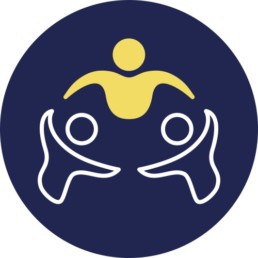
Founded in 1995, the Asian Pacific American Medical Student Association is the largest, official 501(c)(3) non-profit, non-partisan organization of healthcare students committed to addressing the unique health challenges of the Asian American, Native Hawaiian, and Pacific Islander (AANHPI) communities through leadership, mentorship, advocacy, education, and service. Our organization focuses on AANHPI health disparities, cultural barriers to healthcare, advocacy, diversity and intersectionality, community outreach, Hepatitis B/C and cancer initiatives, bone marrow registry, and mental health wellness.
Over the past few years, the AANHPI communities have encountered extreme adversity in the wake of two pandemics: COVID-19 and anti-Asian racism. Instead of shying away from the challenges, APAMSA and our AANHPI communities have risen to the opportunity and flocked together to overcome the challenges that have been imposed on us. We have grown our strength in numbers–now encompassing over 165 local chapters and 10,000 members–by officializing membership and expanding our reach to both pre-medical chapters and alumni. Resultantly, we saw an expansion in the incredible efforts of our local chapters and members advocating and caring for AANHPI communities with a countless number of health fairs, volunteer services, and educational conferences.
As APAMSA continues to grow, our organization remains motivated to improve the health and well-being of AANHPI communities locally, regionally, and nationally.
Join us in fulfilling our 2023-2024 National Goals:
-
- Activate additional pre-medical/pre-health chapters and medical chapters, recruit more alumni members, and strengthen existing relationships
- Advocate for the health and well-being of our AANHPI communities, especially for those among our most vulnerable and marginalized populations
- Connect members locally, regionally, and nationally through numerous conferences (Annual National Conference, 8-9 Regional Conferences, Hepatitis Conferences), in-person and virtual socials, and events
- Educate the general public and healthcare professionals about specific health challenges and disparities that exist in AANHPI communities
-
- Encourage more underrepresented minorities in AANHPI communities to pursue healthcare professions, especially as physicians, through active engagement, recruitment, and support
- Prioritize diversity, inclusion, equity, and intersectionality efforts at local chapters and on national board
- Promote AANHPI-centered medical and public health research with disaggregated data of AANHPI subgroups
- Recruit members to pursue leadership opportunities with APAMSA locally and nationally
- Support local chapters, members, peer organizations, and sponsors in community engagement, advocacy, and educational efforts
Join APAMSA HERE and follow us on Facebook, Twitter, and Instagram to stay connected with us. Sign up to join your local chapter leadership, activate a new pre-med/health or medical chapter, connect with APAMSA mentors, advocate for your local AANHPI communities, and more. Every individual has the power to pursue leadership opportunities and make a tangible difference in your local AANHPI communities. At APAMSA, with our members’ and allies’ unwavering support, we continue to march toward a better tomorrow.
“Life can only be understood backwards, but it must be lived forwards.” – Søren Kierkegaard
Joyce H. Lee
She/Her/Hers
President
president@apamsa.org
